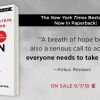7 Best-Selling Medicine History Books Millions Love
Discover Medicine History books endorsed by Jeff Dean (Google AI), Indra Nooyi (PepsiCo), and Vali Nasr (Johns Hopkins SAIS), offering expert-backed, best-selling perspectives.







There's something special about books that both critics and crowds love, especially when they illuminate the complex history of medicine. Medicine history matters now more than ever as understanding past epidemics, ethical dilemmas, and medical breakthroughs helps us navigate current health challenges with proven insights and validated knowledge.
Experts like Jeff Dean, Senior Fellow at Google AI Research, and Indra Nooyi, former CEO of PepsiCo, have spotlighted influential works such as The Great Influenza, which offers a gripping account of the 1918 pandemic. Vali Nasr, professor at Johns Hopkins SAIS, emphasizes how these narratives reveal the entanglement of science, politics, and public trust, shaping how societies respond to health crises.
While these popular books provide frameworks validated by millions, readers seeking tailored perspectives might consider creating a personalized Medicine History book that blends these trusted approaches with your unique interests and learning goals.
by John M. Barry··You?
by John M. Barry··You?
John M. Barry's decades of historical research and policy advising culminate in a detailed narrative of the 1918 influenza pandemic, exploring how the virus spread amid World War I and the societal response to it. You’ll gain a nuanced understanding of the intersection between science, politics, and public trust during a global health crisis, illustrated through chapters that dissect the roles of government and medical institutions. The book is particularly relevant if you want to grasp the complexities of epidemic management and the historical precedents that resonate with modern outbreaks. While it’s thorough in its historical scope, it may not satisfy those looking for a purely scientific or medical textbook, but it offers valuable insights for anyone interested in medicine history and public health policy.
Recommended by P. D. Mangan
Microbiologist, health and fitness educator
“@ClemensXI Glad you asked. Literally, it's the biology of very small organisms, including bacteria, viruses, protozoa, and fungi. The story of van Leeuvenhoek, the first microbiologist, is fascinating, and you might try the book Microbe Hunters by de Kruif.” (from X)
by Paul de Kruif··You?
by Paul de Kruif··You?
Paul de Kruif, a bacteriologist and pathologist, crafted this vivid narrative to illuminate the pioneering scientists who unveiled the microscopic world. You gain insight into the foundational discoveries that shaped modern microbiology and vaccination, illustrated by stories like Louis Pasteur's rabies vaccine breakthrough and van Leeuwenhoek's first glimpse of microbes in rainwater. The book is ideal if you want to understand the human stories behind scientific milestones and how early researchers battled unseen foes to change medicine forever. Its blend of biography and scientific history offers a detailed look at how medical science evolved through curiosity and perseverance.
by TailoredRead AI·
by TailoredRead AI·
This tailored exploration delves into the intricate history of pandemics, focusing on effective responses and pivotal lessons from medical history. It examines how societies have confronted widespread health crises, revealing patterns and insights that resonate with your unique interests and background. The book offers a rich survey of historic pandemics, analyzing medical advances, public health decisions, and societal impacts through a lens personalized to your goals. By concentrating on tailored narratives, it illuminates the evolution of pandemic management and the enduring knowledge that informs today’s health challenges. This approach ensures a focused, engaging experience that matches your curiosity and learning objectives in medicine history.
Recommended by Paul Graham
Co-Founder of Y Combinator
by William H. McNeill·You?
by William H. McNeill·You?
William H. McNeill, a historian known for his broad view of human civilization, reframes world history through the lens of disease impact. You’ll explore how epidemics like smallpox in Mexico and the bubonic plague in China shaped political power, population shifts, and cultural changes, with chapters detailing specific outbreaks and their consequences. This book suits anyone curious about the intersections of medicine and history, especially those wanting to grasp how diseases have influenced societal development and global events. McNeill’s narrative challenges you to see history not just as wars and rulers but as battles with invisible pathogens that altered the course of peoples and nations.
by Harriet A. Washington·You?
After analyzing decades of overlooked medical records and firsthand accounts, Harriet A. Washington developed a revealing account of how African Americans were subjected to unethical medical experimentation from slavery through modern times. You’ll uncover detailed chapters on practices like unauthorized autopsies, the Tuskegee syphilis study, and the influence of eugenics on treatment disparities. This book exposes the roots of medical mistrust in Black communities by tracing historical abuses linked to systemic racism in healthcare. If you're interested in understanding the intersection of race and medicine with a focus on historical injustices, this book provides crucial context and sobering insights.
by Lydia Kang, Nate Pedersen·You?
by Lydia Kang, Nate Pedersen·You?
Drawing from their backgrounds in medicine and science, Lydia Kang and Nate Pedersen explore the bizarre and often dangerous attempts humans have made to cure ailments throughout history. You’ll learn about treatments ranging from morphine for infants to strychnine dosages, revealing not only the trial-and-error nature of early medicine but also the social and scientific contexts that allowed such practices to flourish. This book suits anyone curious about the history of medicine, its missteps, and how far we've come, blending dark humor with insightful storytelling to make the topic accessible and engaging.
by TailoredRead AI·
This personalized book explores the rich history of medicine by focusing on major breakthroughs and their historical context tailored to your interests. It examines pivotal medical milestones, revealing how discoveries and innovations shaped healthcare across ages. The content matches your background and addresses your specific goals, allowing you to grasp complex developments swiftly and meaningfully. From ancient practices to modern advances, it covers key moments that transformed medicine, providing a tailored journey through time. This approach ensures you engage deeply with the aspects that matter most to you, making the learning experience both efficient and captivating.
by Maoshing Ni··You?
What started as Maoshing Ni's dedication to bridging Eastern and Western medical traditions became this detailed translation of the Neijing Suwen, a foundational text of Chinese medicine. You’ll explore the interplay of physiology, diagnosis, and holistic health through dialogues attributed to the Yellow Emperor, gaining insights into how ancient concepts of interconnected life challenge the fragmented view of modern science. The translator’s commentary clarifies the often terse original text, making complex ideas accessible for both students and those curious about traditional approaches to health. If you're interested in the philosophical and ethical dimensions of medicine alongside practical wisdom from Taoist origins, this book offers a unique perspective.
by Jeanne Bendick, Benjamin D. Wiker·You?
by Jeanne Bendick, Benjamin D. Wiker·You?
Jeanne Bendick's exploration of Galen's life offers a vivid glimpse into the medical world of ancient Rome, emphasizing the physician's lasting influence on medical practice and ethics. You gain insight into Galen's diagnostic methods, botanical knowledge, and physiological studies, which shaped medicine through the Middle Ages and Renaissance. The book's narrative style, blending clarity and humor, brings to life the context in which Galen's work emerged, making complex historical science accessible. If you're fascinated by the roots of medical tradition and the human stories behind scientific progress, this biography offers a thoughtful and engaging perspective, especially suited for young readers and educators.
Popular Medicine History Methods, Personalized ✨
Get expert-backed strategies tailored to your unique interests and learning goals in Medicine History.
Trusted by Medicine History enthusiasts worldwide
Conclusion
This collection highlights three clear themes: the profound impact of infectious diseases on societies, the ethical challenges embedded in medical history, and the rich traditions bridging ancient and modern medicine. If you prefer proven methods grounded in historical pandemics, The Great Influenza offers unmatched depth. For those drawn to social justice and ethics, Medical Apartheid provides crucial context. Meanwhile, exploring ancient wisdom in Galen and the Gateway to Medicine enriches foundational knowledge.
Combining these works gives a well-rounded understanding of medicine's evolution and societal roles. Alternatively, you can create a personalized Medicine History book to merge these validated approaches with your specific questions and background.
These widely-adopted books have helped many succeed in grasping medicine's past and present, offering insights that resonate across disciplines and audiences.
Frequently Asked Questions
I'm overwhelmed by choice – which book should I start with?
Start with The Great Influenza for a gripping, well-recommended exploration of a pivotal pandemic that shaped modern public health. It offers a compelling narrative accessible to newcomers and experts alike.
Are these books too advanced for someone new to Medicine History?
No, many books like Galen and the Gateway to Medicine and Quackery are approachable and provide clear storytelling that welcomes beginners while still offering depth for seasoned readers.
Do I really need to read all of these, or can I just pick one?
You can pick based on your interest: choose Medical Apartheid for ethics, Microbe Hunters for scientific discovery stories, or Plagues and Peoples for societal impact. Each stands strong alone.
What's the best order to read these books?
Consider starting with The Great Influenza to understand pandemic history, then explore Microbe Hunters and Plagues and Peoples for science and societal effects, followed by Medical Apartheid and Quackery for ethics and medical missteps.
Are any of these books outdated given how fast Medicine History changes?
These works remain relevant because they examine historical foundations and ethical lessons that continue to influence medicine today, providing context beyond shifting current trends.
How can personalized Medicine History books complement these expert picks?
While these expert-backed books offer proven insights, personalized Medicine History books tailor content to your goals and background, combining popular methods with what matters most to you. Learn more here.
📚 Love this book list?
Help fellow book lovers discover great books, share this curated list with others!
Related Articles You May Like
Explore more curated book recommendations






